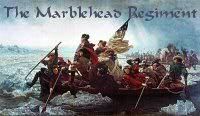So, ACLU=ok, but Federalist=bad?
WASHINGTON - Suspicion that hidden groups sway the powerful and subvert democracy routinely surfaces in American life, especially at times when the country is deeply divided. In early decades of the Republic, the whispers were about Freemasons. Later, they ranged from bankers and communists to the Trilateral Commission.Yes, please.
Now, it's the Federalist Society. In the run-up to the first Supreme Court confirmation in more than a decade, the group is drawing fire, especially as Democrats sharpen their line of questioning about court nominee John Roberts and his links to the society.
On its face, the Federalist Society is just another think tank in a town awash with them. But critics see something more - a well-oiled juggernaut out to remake the courts in the image of Robert Bork, the Supreme Court nominee rejected by the Senate in 1987, who predicted that a new generation, "often associated with the Federalist Society," would transform the legal profession.
Whether Roberts was a 'member' of the Federalist Society, "the question is: So what? What are we talking about here: the Communist Party? The Ku Klux Klan?" asks Roger Pilon, vice president for legal affairs at the Cato Institute and a society member.But didn't we raise a fuss when Ruth "I love the ACLU" Bader Ginsberg was nominated? Liberals will do anything to keep us from having our nominees---even make things up.
Recently, the society's executive vice president, Leonard Leo, took a leave of absence to help the Bush White House with the Roberts nomination. Critics say it's another sign of the society's influence in the Bush administration's overhaul of the nation's courts.
"It's not a secret conspiracy. The Federalist Society is quite clear about where they want to go on issues like civil rights law and corporate regulation. Their views are in the public, but the public hasn't paid attention," says [Alfred]Ross.
 I Remember
I Remember
















































<< Home